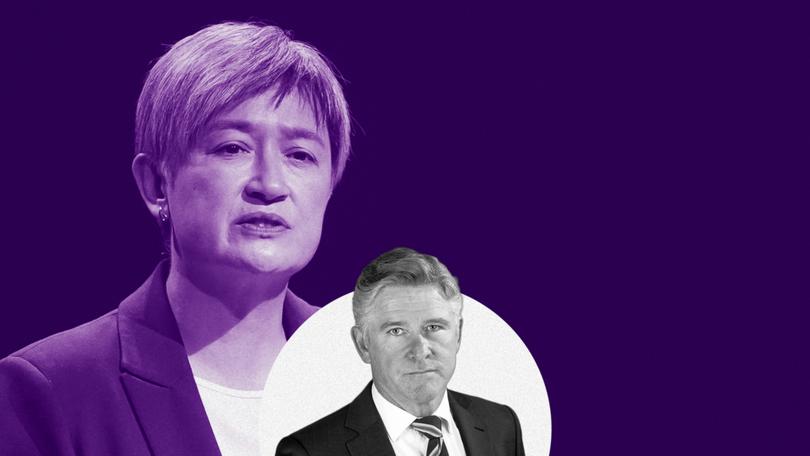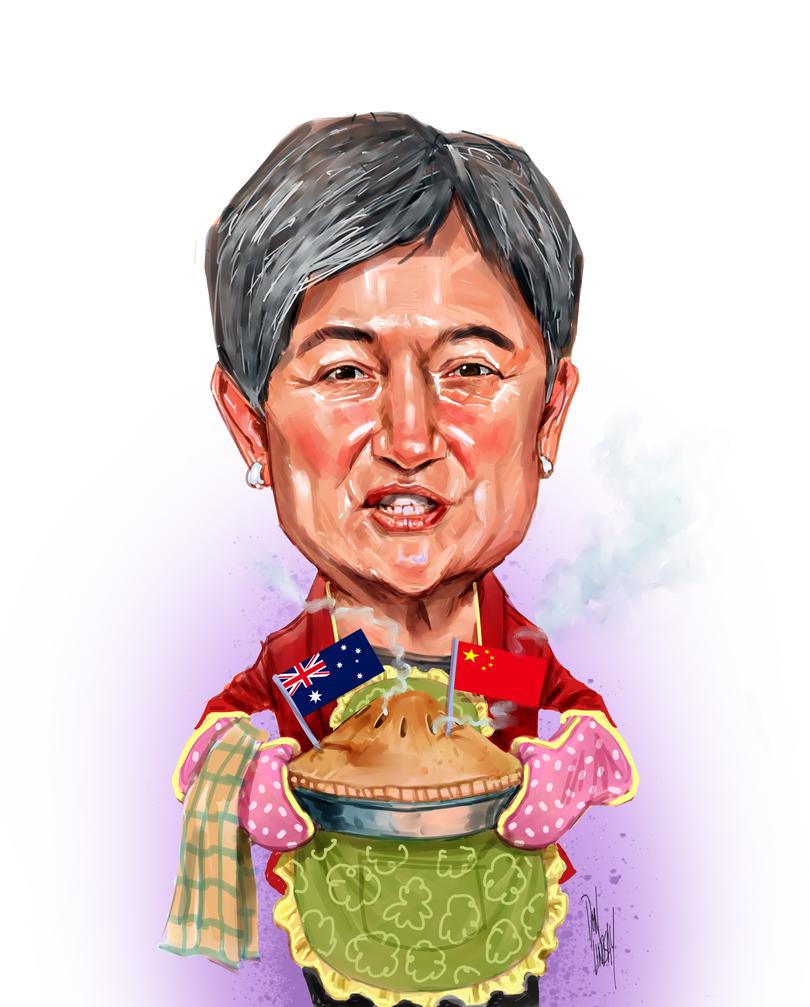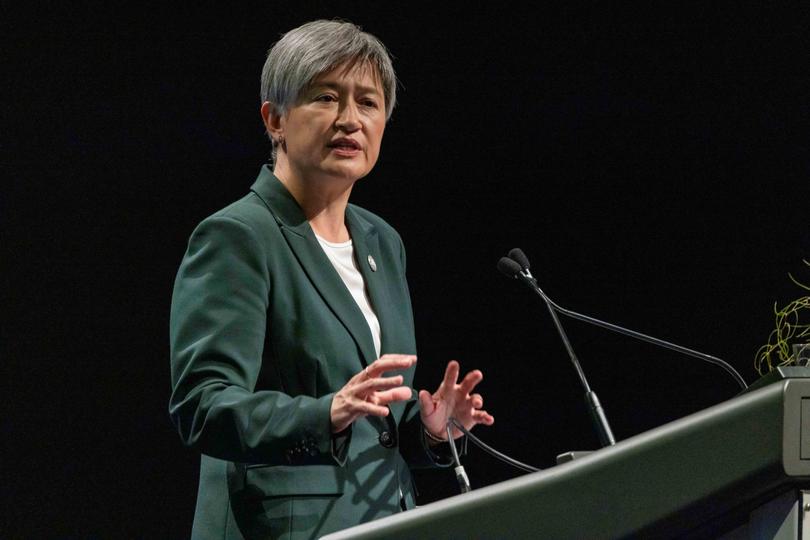MARK RILEY: China’s trade war is cooling down. But Penny Wong insists mutual concessions aren’t transactional
Delivering the Whitlam Oration in 2022, Penny Wong gave the first outline of the new Government’s position on China, which included this: ‘We will seek to co-operate where we can and disagree where we must’.

In the final year of the Obama presidency in 2016, the commander of the US forces in the Pacific, Admiral Harry Harris, made a striking declaration at the annual Shangri-La Dialogue in Singapore.
Harris told the assembled international defence representatives that America was doing its best to engage peacefully with a rapidly expanding Chinese military across the Asia-Pacific.
But at the same time the US was also preparing for the worst.
Sign up to The Nightly's newsletters.
Get the first look at the digital newspaper, curated daily stories and breaking headlines delivered to your inbox.
By continuing you agree to our Terms and Privacy Policy.“The bottom line is this,” Harris said.
“We want to co-operate where we can, but we just have to be ready as a military to confront them if we must.”
By the time he spoke at the Lowy Institute in Sydney that December, Harris had refined his line to something a little pithier.
“We will co-operate where we can, but we will be ready to confront where we must,” he said.
His searing yet simple expression of the competing challenges of dealing with China resonated throughout the region.

It has since morphed into the Albanese Government’s unofficial position, although with the military overtones excised.
Delivering the Whitlam Oration in December 2022, Foreign Minister Penny Wong gave the first comprehensive outline of the new Government’s position on China, which included this: “We will seek to co-operate where we can and disagree where we must”.
That line was quickly picked up with gusto by Prime Minister Anthony Albanese and has been employed many times since to underscore his own approach.
Wong used it again on Wednesday at a Canberra news conference attended by a group of Chinese journalists travelling with Foreign Minister Wang Yi.
More importantly, she spelt it out across the table to Wang himself as they made their opening statements in front of the television cameras.
Wong did not hold back.
She wasn’t pithy but precise, detailing the areas where Australia furiously disagreed with China.
“I look forward to speaking frankly with you about Australians detained in China, human rights, maritime security and safety as well as regional and international issues such as the Pacific, Russia’s invasion of Ukraine and the conflict in the Middle East,” Wong said, eyeballing her Chinese visitor.

And she did speak frankly about all of them in their private meeting and more.
Sinophiles have long maintained that the Chinese authorities have a deep respect for those contemporaries who advocate their views with strength and commitment.
Wong demonstrated both those qualities this week and earned that respect in Beijing and among her colleagues in Canberra.
Wang acknowledged that the two countries will continue to have their disagreements, but delivered an equally familiar diplomatic dictum to suggest that our common interests far outweighed those differences.
“The right approach is to make the pie of common interests bigger,” he said.
Each country has offered the other significant slices of that pie over the past week, although the Australian Government maintains this exchange was coincidental and not transactional.
Last Friday, Industry Minister Ed Husic formally dropped Australia’s anti-dumping case against the importation of Chinese wind turbines.
That move was welcomed in Beijing as “a good gesture”, coming just days before Mr Wang’s visit — the first to Australia by a high-ranking Chinese official in seven years.
And on Wednesday, Wang appeared to reciprocate by delivering the most definitive signal yet that China’s billion-dollar ban on Australian wine could be lifted within days.
Wong insisted that, despite appearances, there was no connection between these two diplomatic pieces of pie.
For many, though, that is a little hard to swallow.
Either way, it provides rich evidence that the trade war between the two countries is nearing its end.
There is now hope that the final restrictions on beef and lobster exports could be lifted within months if not weeks.
Resolving those issues would deliver a great bonus to Australian producers who have wisely and successfully expanded their exports into new markets to offset the massive losses they suffered in the trade tussle with China.
Their challenge now is to continue serving those new markets while re-engaging at the same time with their old Chinese customers.
Doing that would reap a lucrative dividend from cooperating with China where we can and disagreeing where we must.

